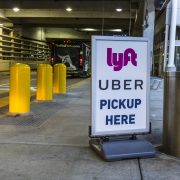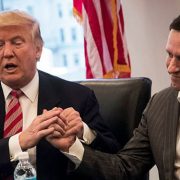The New York City Council recently succeeded in dealing a huge blow to the entire ridesharing industry. Uber and Lyft are no strangers to dealing with local governments trying to regulate them out of existence, but Manhattan’s actions have escalated the situation to unprecedented levels by restricting the number of Uber vehicles permitted within city limits.
The city council voted to cap the number of Uber cars allowed to operate within the city and institute a minimum wage for ridesharing drivers. This is a huge regulatory overstep, as it completely undermines the elements that originally made ridesharing such an innovative sector, to begin with. Uber not only made rides more affordable and convenient for passengers, but it also provided the option of quick employment to those in need of work. This allowed any individual the opportunity to become an entrepreneur by using property they already owned. And this served to help many people who were looking to improve their financial situation.
Now that the number of Ubers is to be capped, there will be fewer opportunities for new drivers to earn money, and the consumers will suffer as well. Prior to Uber’s rise in popularity, there were many communities that were underserved by cabs. In many cases, cab drivers refused to service minority communities. Uber, however, helped to solve this problem by providing options to those who found it difficult to find a ride.
Ridesharing also helped provide alternatives to commuters who were fed up with the city-run Subway. Now thanks to the new cap, many residents will be without reliable transportation. Of course, that doesn’t seem to really bother city officials who seem more obsessed with controlling the ridesharing sector than they are about New York City’s transportation issues.
Josh Gold, a spokesman for Uber, said:
“A 12-month pause on new for-hire vehicle licenses will leave New Yorkers stranded while doing nothing to prevent congestion, fix the subways and help struggling taxi medallion owners. It’s unfortunate that the Council chose to tack this on to a thoughtful package, including the living wage proposal.”
Governments Despise What They Can’t Control
When Mayor de Blasio was asked why he and other city officials felt such a drastic move was necessary, he first blamed Uber for traffic congestion and then accused the company of trapping its drivers in poverty by refusing to pay them a “living wage.”
He commented:
“The Uber business model is: Flood the market with as many cars and drivers as possible, gain more market share and to hell with what happens to drivers or anybody else involved.”
He also added:
“Our city is directly confronting a crisis that is driving working New Yorkers into poverty and our streets into gridlock. The unchecked growth of app-based for-hire vehicle companies has demanded action – and now we have it.”
Not only is Uber a secondary source of income for many drivers, but drivers are also free to leave their jobs at any time. Yet, for some reason, Mayor de Blasio thinks individual residents are incapable of using their own judgment when it comes to negotiating wages. And by forcing a minimum wage on Uber, the city council is effectively destroying the entire employment model that makes the sharing economy so great.
Uber drivers are not employees, they are contractors using their own property and drive according to their own schedule. But by instituting a minimum wage, you are changing contractors into employees and taking away their ability to work directly with the company to determine payment.
To make matters worse, the cap is set to last for a year, during which time the Taxi and Limousine Commission (TLC) will be tasked with conducting a study to determine the effects of ridesharing within the city. This would be akin to the government tasking Pepsi with studying Coca-Cola’s effects on consumers. It would be completely unethical to place the competition charge of determining someone’s fate. But this is exactly what New York City is doing, which makes it seem like this whole thing is more about control than it is about concern for the city.
Ridesharing, along with the broader sharing economy, sprung up without any help from government officials. No one asked permission first; instead Uber saw an opportunity to innovate and they ran with it. And it was precisely this spontaneous creation that led local governments to fear it.
Since New York City is hardly alone in its contempt for the ridesharing economy, it is only a matter of time until other cities use this measure as a precedent for their own restrictions. And therein lies the real trouble. Uber has vowed to not let this get in the way of their ability to serve the people of New York City. The company has even launched a campaign promising to continue business as usual. The city government may continue its oppressive measures against the company, but the market always seems to find a way.













